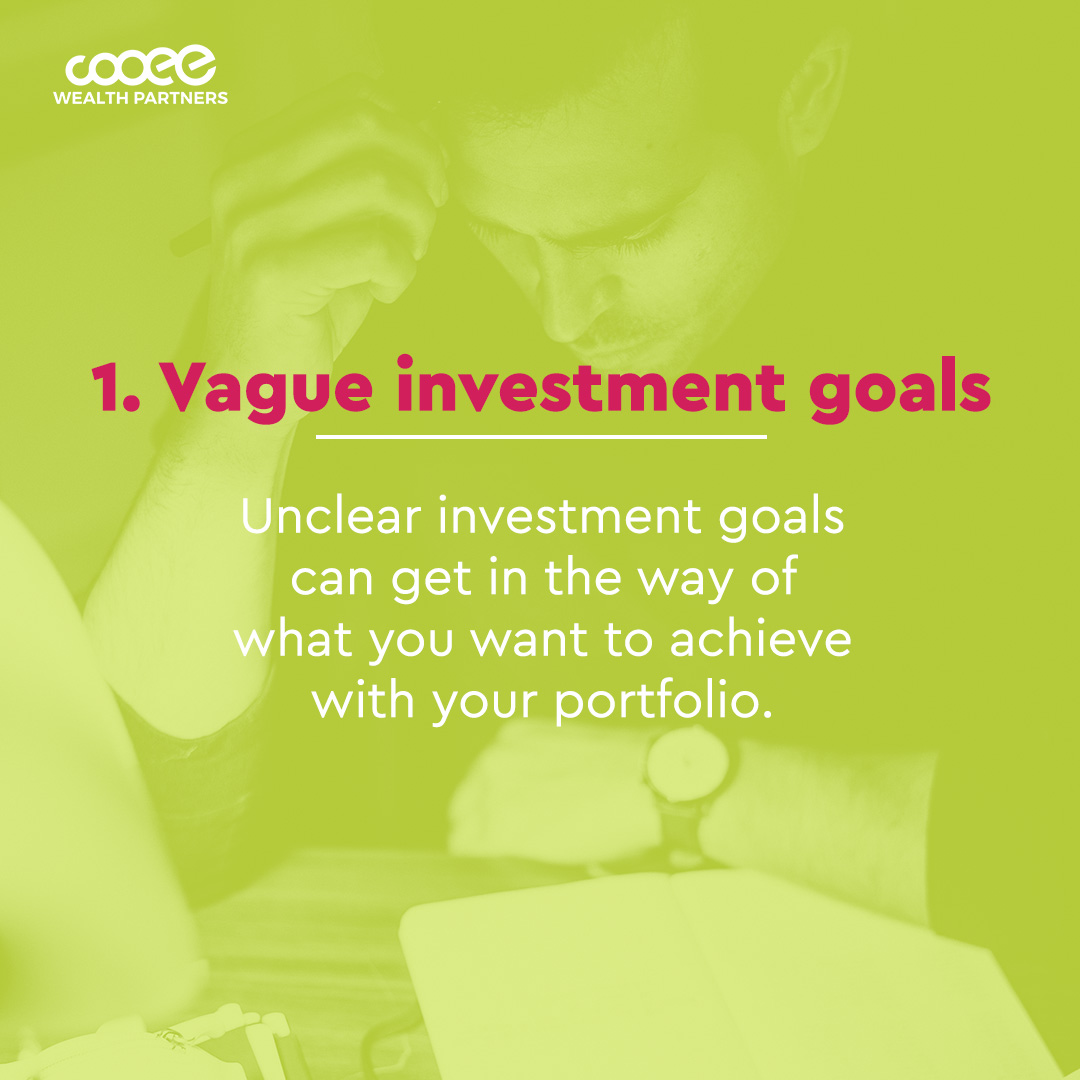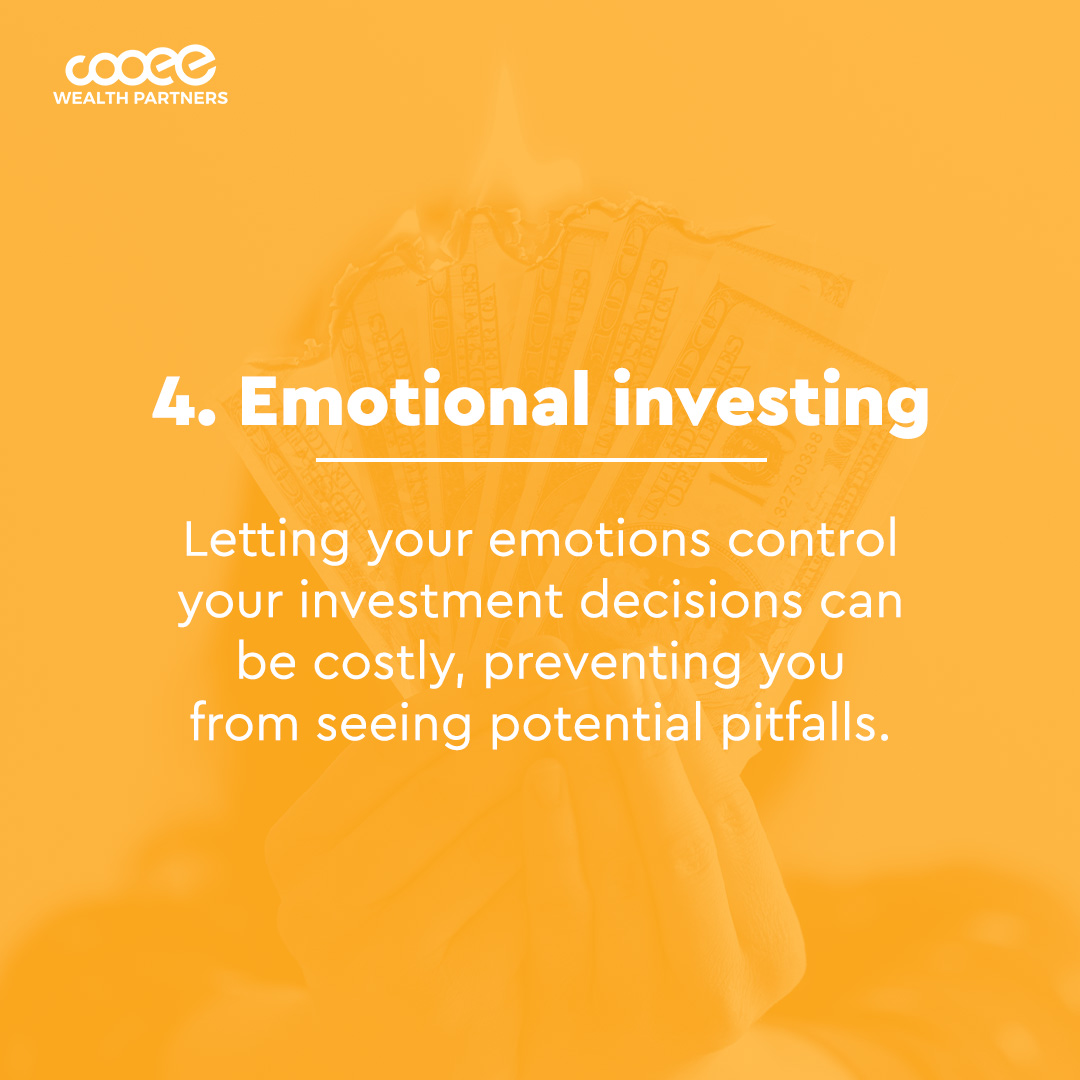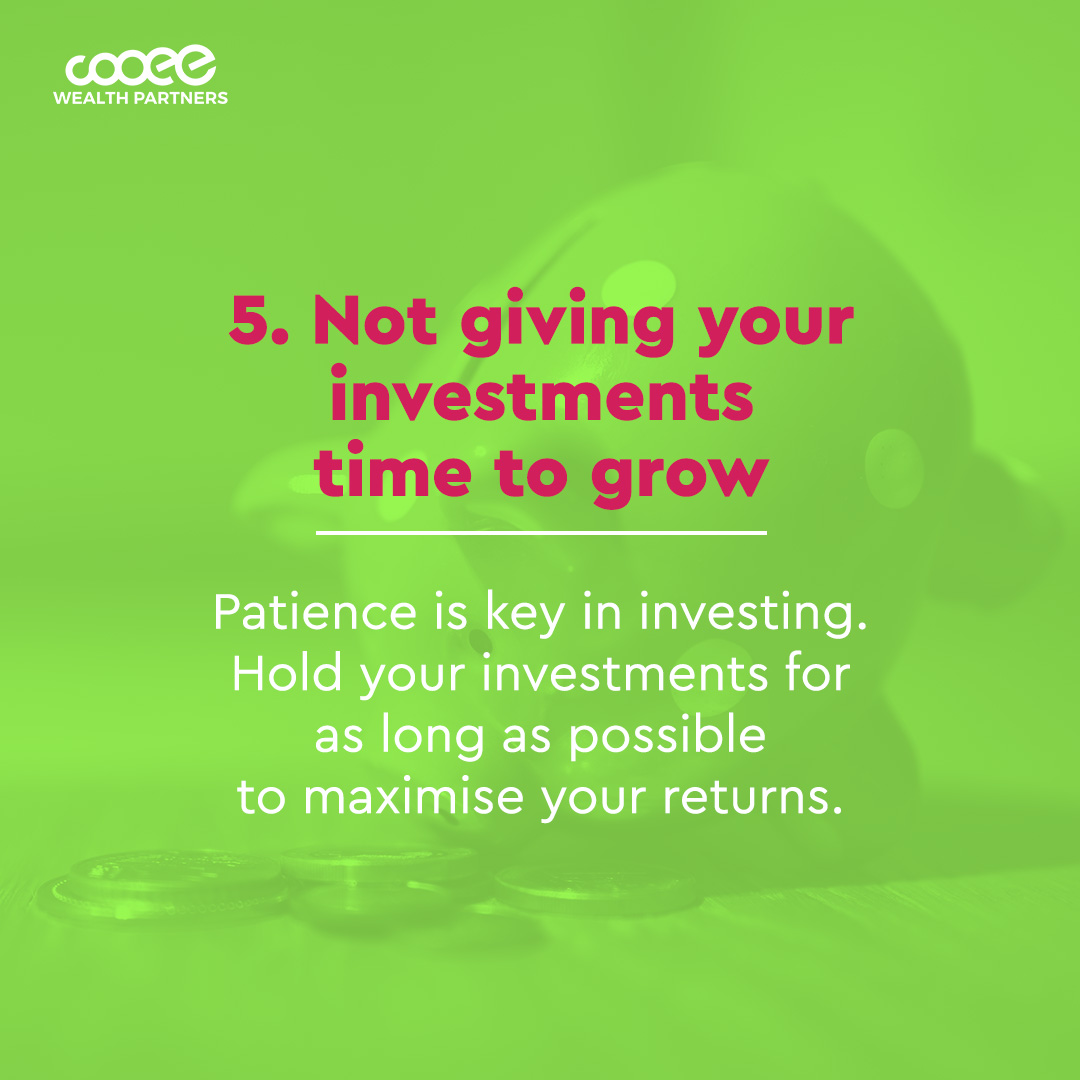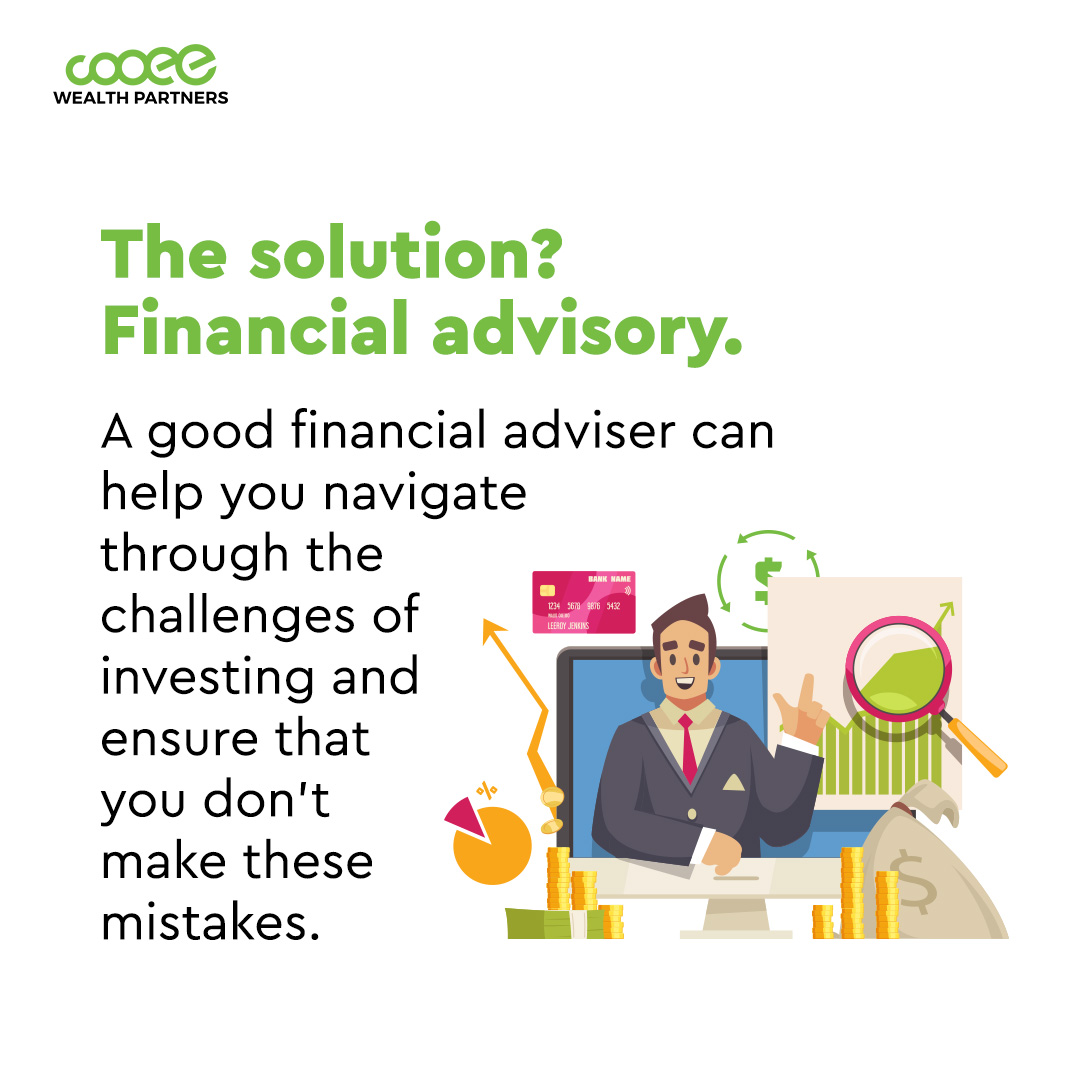
We’ve got some difficult news to share with you: How your investments performed in the past doesn’t dictate how well they will perform in the future.
If you have a “set then forget” type of mindset when it comes to your investment portfolio, you might have a hard time achieving your goals in the long run. You may have developed better investments for your portfolio with Cooee Wealth Partners’ guidance, but this doesn’t mean every good investment will always perform well.
While it’s important to let your investments do their work, you also need to remain attentive to how your portfolio is performing — and if there are changes that you need to make either with your strategies or in your investment portfolio.
Many bad habits can have significant impacts on your investments in the future, even if they seem like they’re contributing to your success now.
5 mistakes hindering investors from achieving their financial goals
Some investors have developed particular habits or “strategies” that seem helpful at the beginning stages of their investing journey but can create difficulties for them as time goes on.
This isn’t anything to be ashamed of, though! The important thing is to become aware of these bad habits and address them as soon as you identify them.
1. Having vague investment goals
Some investors focus too much on the latest investment fads or maximising short-term investment returns instead of defining clear goals and structuring an investment portfolio that helps them achieve those long-term objectives.
Unclear investment goals can get in the way of fully optimising your portfolio, making it harder for you to achieve what you want to have for the future.
We often hear the “S.M.A.R.T” method about developing business goals, but this works for creating financial and investment goals, too. This narrows down the objectives you can set for yourself while ensuring that they are specific, measurable, achievable, relevant and time-bound.
You can design your investment plan, strategies, portfolio and even individual securities with those objectives in mind. By identifying your goals and the potential investment strategies you can implement, you can check if your plan aligns with your reality and your objectives. If not, then that means you need to adjust either your goals or your strategies.
2. Constantly reacting to the market
Diligently monitoring your portfolio’s performance does not mean you have to watch the daily market news!
Big-shot investors like Warren Buffet agree that fellow investors shouldn’t watch the market too closely, especially when stocks are down. This is because markets are constantly moving and changing. Trying to follow and adapt to these changes in real time can lead you to continuously change your investments when you’re better off leaving them alone for the long haul.
You might be tempted to sell when market conditions are down, but this might derail your long-term plans. By the time the news sounds a little better on the television, the market has already recovered, so if you miss that window of recovery, it can be much harder to hit your financial goals.
3. Following bad social media advice
Social media has made everything more accessible in today’s digital landscape, which has its benefits and drawbacks.
On one hand, social media allows people to learn about different topics from the experts themselves. On the other hand, it also enables the dissemination of inaccurate or false information.
Some studies show younger investors, particularly from the Millennial and Gen Z generations, are more likely to go on social media to seek advice from “finfluencers” (a shorthand for alleged financial influencers) because they connect with these content creators. However, using social media as the primary source of information and financial advice can be detrimental to an investor’s journey.
A big issue with “finfluencers” is the number of bad faith actors in this industry, with celebrities and other popular public figures who don’t disclose the promotional paid content on their social media pages.
It’s also important to remember that every individual has different goals and financial situations. Investment advice on social media will not necessarily fit your needs or help you actualise your long-term goals.
It’s understandable if you don’t trust media outlets for information, but that doesn’t mean that your decisions should be guided by celebrities or finfluencers who aren’t qualified to speak about investment advice. It’s always best to seek the guidance of a professional financial adviser who has your best interests in mind.
4. Letting emotions control your decisions
Following your “gut feel” may serve you in other areas of your life, but it’s something that should take a backseat when it comes to making financial and investment decisions.
According to a study by Morningstar, the cost of emotional investing to everyday investors is on the order of 100 to 150 basis points, annualised. Emotional investing, especially when it involves feelings of anxiety and panic, can greatly hinder you from achieving your goals and create more stumbling blocks in your investment journey.
It’s important to stay level-headed and logical when you’re making big decisions, making sure that your emotions don’t sway you in one way or another. A combination of behavioural tools to mitigate emotional investing and thoughtful asset allocation based on your risk capacity can help you feel stabilised during market downturns
5. Not giving your investments time to grow
It can be tempting to bail out on an investment because it did not double your money in a certain period, (whether that’s days or weeks). But it’s better to hold your investments for as long as possible, even in your original targeted timeline, to maximise your returns.
Understanding the inherent risks that come with investing can help you avoid the knee-jerk reaction of panic. This will help you identify your capacity and tolerance for risk, and which assets are best suited to your preferences. True diversification of assets can also help you grow your investments with fewer ups and downs on your targeted timeline.
Financial advisory: The solution to these investing mistakes
While financial advice can help you build more wealth, its real value comes from avoiding loss and making mistakes. Financial advisory is a preventative measure from making these mistakes, as well as to finding solutions in case the reader has already fallen into one (or many) of these bad habits.
Having a financial adviser who understands your goals can help you identify which investment strategy to implement and help you steer clear of potential pitfalls along the way. Just make sure that you choose an adviser that works for your best interests.

Having a financial adviser will help as you will have a clear plan, and someone to bounce ideas off to avoid illogical and emotional decisions. Book a meeting with one of our Wealth Partners and let’s discuss how we can help you in your investment journey.







